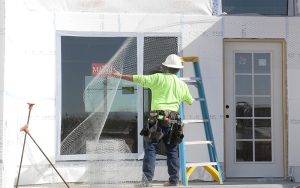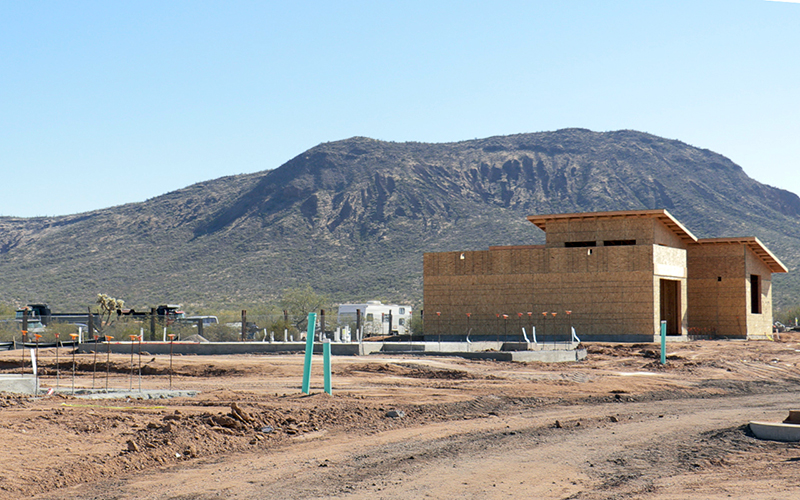TUCSON – The Pascua Yaqui Tribe is building 200 affordable homes after receiving millions of dollars in tax credits to fund the project on the reservation southwest of Tucson.
Keith Gregory, Pascua Yaqui’s director of housing, said the tribe has 1,100 families on a waitlist for affordable housing. However, 200 of those families will be placed into homes after the construction is completed this year.
“I think the average wait for families is around seven years,” he said, “so these are families that have been waiting and in desperate need. You don’t sign up to be on a waitlist for housing if you don’t need it.”
Elderly and people with disabilities are on a prioritized list, but aside from that the waitlist for housing is first-come, first-serve.
“That’s really intended to keep the process as fair as possible,” Gregory said.
The new development will be completed in three phases and will feature different housing styles, including single-family homes and townhomes.
“What we’re trying to do has never been done before, anywhere in tribal housing,” Gregory said. “The phase we are working on right now is literally the largest tax credit project ever done in the United States on tribal land.”
Gregory said it took about six months to get the funding.

A construction crew member works on the exterior of one of the homes in the subdivision, which will feature different housing styles, including single-family homes and townhomes. (Photo by Madison Thomas/Cronkite News)
“It really came down to just conversations and really bringing people to the table and explaining what it was we were trying to do and who we’re trying to help and how this project would have a real positive impact in the long run,” he said.
The project received $18 million in low-income housing tax credits from the Arizona Department of Housing. They were sold to private investors at $0.86 per dollar, totaling about $15 million dollars. This money was layered with tribal funds and a grant from the Affordable Housing Program through Foothills Bank.
Alejandro Marquez, a field engineer for FCI Constructors who’s working on the project, said there have been several delays in construction.
“COVID was definitely one of them. We did lose a lot of manpower for quite a period of time,” Marquez said.
Originally, half the 50 houses in the first phase of construction were supposed to be completed in March, but they now are expected to be finished by the end of June. All homes in the first phase are expected to be built by the end of the year.
After renting homes for 15 years, tenants will have the option to buy the home at a reduced rate.
“We’re giving people that sense of pride and investment in their community. This allows families to start building generational wealth from the home’s equity. Housing is more than just buildings.” Gregory said. “It’s an opportunity to help people reach their own goals.”

The first phase of 50 homes is under construction on the Pascua Yaqui Reservation near Tucson and is expected to be ready by the end of the year. (Photo by Madison Thomas/Cronkite News)
